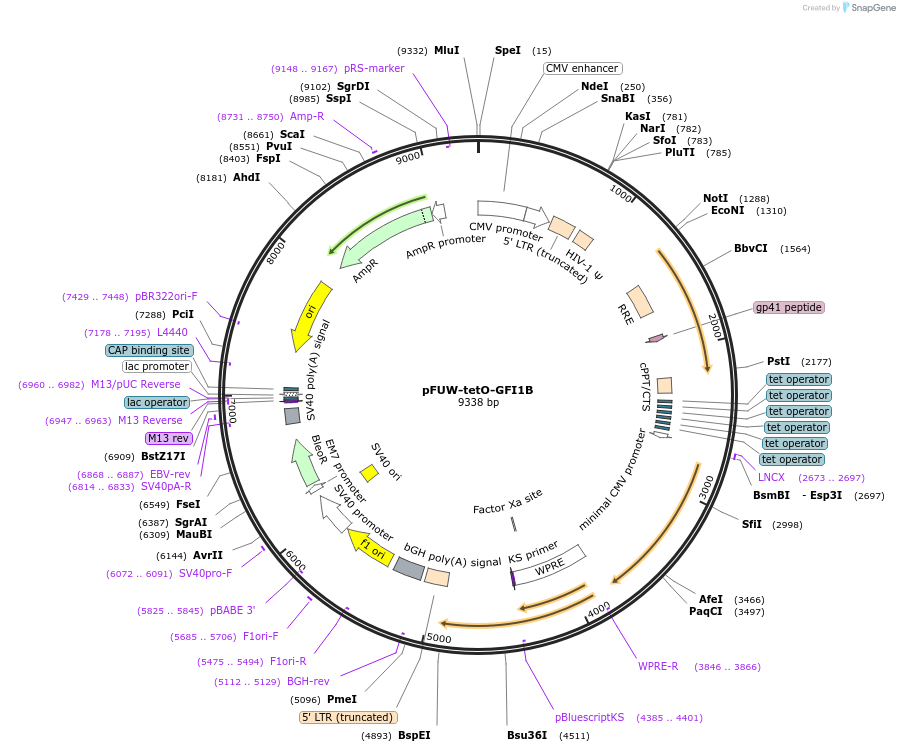pFUW-tetO-GFI1B
(Plasmid
#125597)
-
Purposedoxycycline-inducible expression of human GFI1B in mammalian cells
-
Depositing Lab
-
Sequence Information
Ordering
| Item | Catalog # | Description | Quantity | Price (USD) | |
|---|---|---|---|---|---|
| Plasmid | 125597 | Standard format: Plasmid sent in bacteria as agar stab | 1 | $85 | |
Backbone
-
Vector backbonepFUW-tetO
-
Vector typeMammalian Expression, Lentiviral
Growth in Bacteria
-
Bacterial Resistance(s)Ampicillin, 100 μg/mL
-
Growth Temperature37°C
-
Growth Strain(s)NEB Stable
-
Copy numberHigh Copy
Gene/Insert
-
Gene/Insert nameGrowth Factor Independent 1B transcriptional repressor
-
SpeciesH. sapiens (human)
-
Insert Size (bp)993
-
GenBank IDNM_004188.6
-
Entrez GeneGFI1B (a.k.a. BDPLT17, ZNF163B)
- Promoter TRE-mCMV
-
Tag
/ Fusion Protein
- None
Cloning Information
- Cloning method Restriction Enzyme
- 5′ cloning site EcoRI (unknown if destroyed)
- 3′ cloning site EcoRI (unknown if destroyed)
- 5′ sequencing primer TCCACGCTGTTTTGACCTCC (Common Sequencing Primers)
Resource Information
-
Article Citing this Plasmid
Terms and Licenses
-
Academic/Nonprofit Terms
-
Industry Terms
- Not Available to Industry
Trademarks:
- Zeocin® is an InvivoGen trademark.
These plasmids were created by your colleagues. Please acknowledge the Principal Investigator, cite the article in which the plasmids were described, and include Addgene in the Materials and Methods of your future publications.
-
For your Materials & Methods section:
pFUW-tetO-GFI1B was a gift from Filipe Pereira (Addgene plasmid # 125597 ; http://n2t.net/addgene:125597 ; RRID:Addgene_125597) -
For your References section:
Cooperative Transcription Factor Induction Mediates Hemogenic Reprogramming. Gomes AM, Kurochkin I, Chang B, Daniel M, Law K, Satija N, Lachmann A, Wang Z, Ferreira L, Ma'ayan A, Chen BK, Papatsenko D, Lemischka IR, Moore KA, Pereira CF. Cell Rep. 2018 Dec 4;25(10):2821-2835.e7. doi: 10.1016/j.celrep.2018.11.032. 10.1016/j.celrep.2018.11.032 PubMed 30517869

